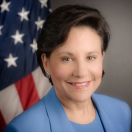
The whole world watched the story unfold: just over four years ago, a new era in Tunisia’s history began with a single act of defiance by a young vendor named Mohamed Bouazizi. Mohamed was frustrated by a lack of opportunity for business owners, workers, and entrepreneurs. He felt held back by a tradition of rampant corruption and contempt from political leaders more interested in enriching themselves than in serving their people.
His single act of desperation became the first chapter in the story of a nation’s self-determination. Thousands of people took to the streets, fed up with the tyranny of a government that denied its own citizens basic dignity, respect, and economic opportunity.
Today, we cannot forget that the roots of that extraordinary political upheaval were about economic freedom. Indeed, Mohamed Bouazizi’s demands were simple: the chance to earn a good living; the opportunity to start a business; and the need to put food on the table and support a family.
Since the days of the revolution, Tunisia has undergone a historic transition from dictatorship to democracy, bolstered by a firm commitment to inclusivity, consensus, and political pluralism. The country’s leaders have ratified a progressive constitution. Tunisia’s people voted in free and fair elections and inaugurated their first democratically-elected President. Legislators approved an inclusive government.
This political progress has been rapid and remarkable, inspiring and necessary. A stable, functioning democracy is a fundamental backbone of a strong economy and a healthy society. However, this political shift is not enough. The next step – economic reform – is essential if the revolution is to fulfill the ambitions of the Tunisian people.
This week, I am leading a U.S. delegation to the Investment and Entrepreneurship Conference in Tunisia, organized by Partners for a New Beginning and the Tunisian American Chamber of Commerce. I am also meeting with government officials, business leaders, and entrepreneurs in the country. The purpose of this visit is to demonstrate support for the consolidation of Tunisia’s remarkable democratic gains, while also encouraging the government to enact economic reforms that will create broad-based economic opportunity for the Tunisian people. In meetings with Tunisia’s President and Prime Minister, it was clear that the country’s government knows that the time is now to ensure all Tunisians, young and old, get a fair shot at economic success.
The Tunisians I met discussed a number of issues that Tunisia could tackle immediately to encourage investment and create an environment for widespread job creation.
First, Tunisia must streamline, simplify, and clarify its complicated investment code – to send a signal to local and global investors that Tunisia is open for business.
Second, Tunisia needs comprehensive, forward-looking banking reform that recapitalizes publicly-owned banks, supports the creation of new businesses, and includes a bankruptcy law to protect risk-takers and to lay the cornerstones for an entrepreneurial ecosystem.
Third, Tunisia needs a transparent, reliable, and modern tax and customs structure that incorporates the informal economy into the broader market.
Finally, Tunisia should enact a strong public-private partnership law that attracts private capital for infrastructure projects and increases transparency and predictability for domestic and foreign firms who want to invest in the country’s future.
These would be significant steps forward in helping Tunisia’s economy match the country’s democratic progress, and the United States is ready to help every step of the way.
As Tunisia’s leaders continue to seek the path to more job creation and economic growth, the Obama Administration recently announced several programs aimed at deepening the partnership between our nations.
The Department of Commerce is launching a public-private partnership called the Regional Investments to Support Entrepreneurship–or RISE. Through this initiative, we will work with private companies, incubators, and non-profit groups to promote trade and investment between our countries, increase market access, and improve commercial rule of law.
We hope to expand RISE to other points around the world, but we chose Tunisia as our pilot program. Our department will post a new employee in Tunis to coordinate with our private sector partners who will increase training, mentoring, and access to finance for entrepreneurs; support the development of incubators and accelerators for Tunisian entrepreneurs; and encourage economic reforms that improve the commercial environment.
In addition, the Commerce Department’s Commercial Law Development Program will host a series of events to expand training and technical assistance for Tunisian businesses.
The State Department is organizing a pitch competition called “Detroit SOUP,” where social investors will hear from four Tunisian groups and vote on their favorite pitch. The winning organization will receive an infusion of capital funds contributed to an investment pool by event participants.
Next, through the Business Reform and Competitiveness Project, the United States Agency for International Development will provide more direct assistance to Tunisian companies and increase job matching services, with a commitment to create 2,500 jobs in Tunisia over the next year.
Finally, the Overseas Private Investment Corporation announced the creation of a $37.5 million lending facility for small and medium-sized enterprises, which will focus on the franchising sector, in collaboration with three Tunisian banks.
The message these initiatives send is crystal clear: America is Tunisia’s partner as it works to transform its economy to meet the aspirations of all of Tunisia’s citizens.
It is in the United States’ strategic interest to see Tunisia’s pluralist, democratic approach to government succeed and to see its political progress supported by economic success, and we are committed to standing by Tunisia as it continues to fulfill the promises of its revolution.
This is Tunisia’s moment. And if its leaders seize it, Tunisia can be a model of peace and prosperity not only for the North Africa region, but for the entire world.


